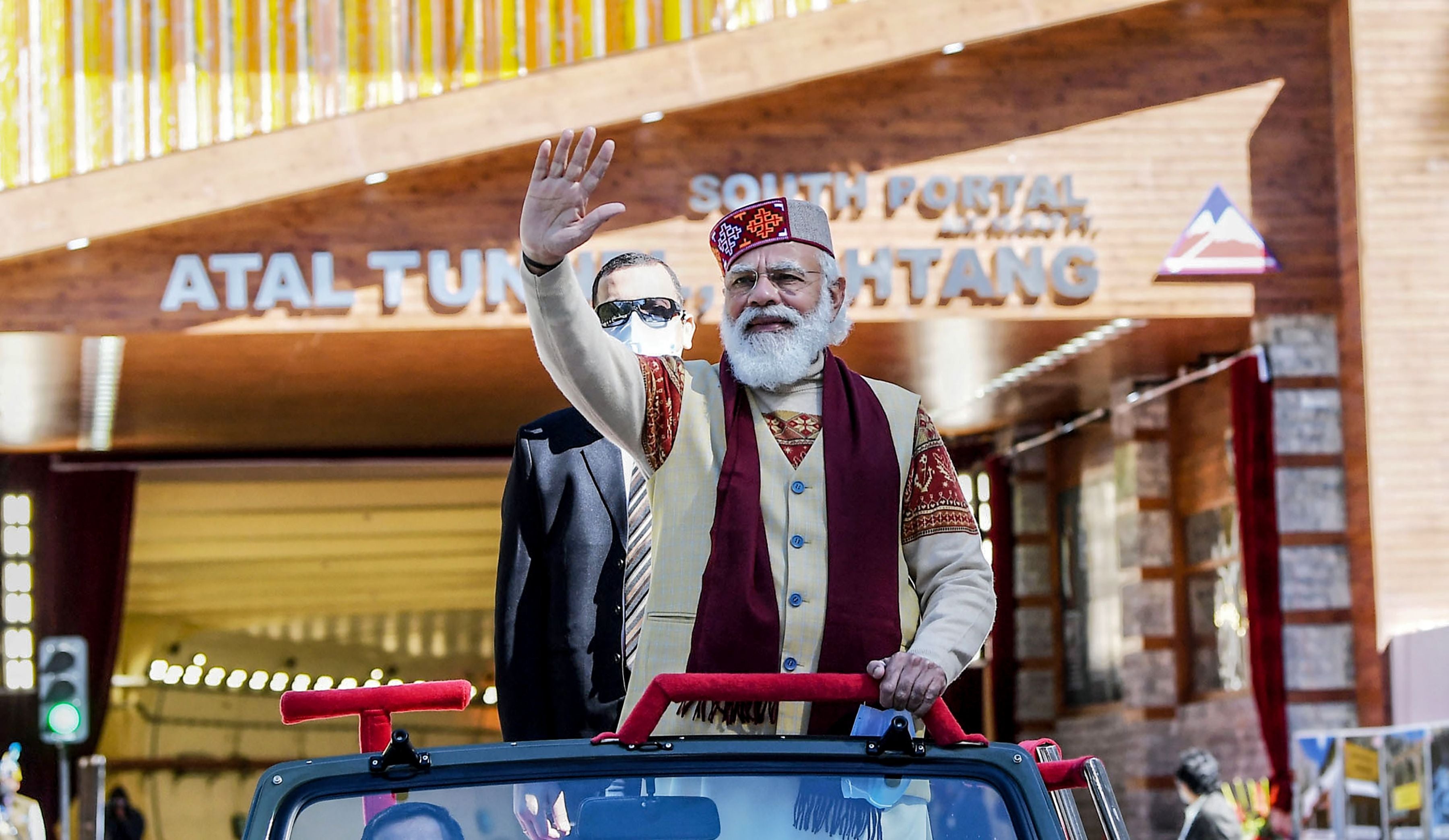Outcry in India as Modi's ruling party offers 'free vaccines' in election manifesto
The BJP party is being accused of politicising a pandemic in a country that has one of the world’s worst outbreaks

Your support helps us to tell the story
From reproductive rights to climate change to Big Tech, The Independent is on the ground when the story is developing. Whether it's investigating the financials of Elon Musk's pro-Trump PAC or producing our latest documentary, 'The A Word', which shines a light on the American women fighting for reproductive rights, we know how important it is to parse out the facts from the messaging.
At such a critical moment in US history, we need reporters on the ground. Your donation allows us to keep sending journalists to speak to both sides of the story.
The Independent is trusted by Americans across the entire political spectrum. And unlike many other quality news outlets, we choose not to lock Americans out of our reporting and analysis with paywalls. We believe quality journalism should be available to everyone, paid for by those who can afford it.
Your support makes all the difference.India’s ruling party has sparked an outcry by including a pledge to offer “free vaccines” in its election manifesto for a crucial upcoming state election.
Senior figures from Narendra Modi’s BJP are campaigning hard in the populous eastern state of Bihar, where voting will begin in less than a week, and where a loss for the party would be seen as a damning indictment on its handling of the Covid-19 crisis.
National finance minister Nirmala Sitharaman released the party’s manifesto for the state polls on Thursday in Patna, Bihar’s largest city, but was accused of politicising the central government’s response to the pandemic by making the vaccine pledge.
India is involved in the production of several vaccine candidates, but has yet to announce the mechanism through which any successful protection against Covid-19 would be distributed to its 1.3 billion people. Health is usually a devolved matter in India’s federal system, though Delhi has taken the lead in national action to contain the coronavirus.
The issue of coronavirus has played a big role in the Bihar campaign, with the country having had more than 7.7 million Covid-19 cases, the second highest in the world behind the US, and 117,000 deaths. And Bihar was particularly severely impacted by the mass exodus of migrant workers out of big cities at the start of India’s lockdown in March.
Speaking at the manifesto launch event, Ms Sitharaman said: “As and when the vaccine candidates that are currently under various levels of trials in the country get scientific clearances and a go-ahead for production, the people of Bihar will get vaccination for free once the production in India is on a large scale. This is our first poll promise as mentioned in the manifesto."
Opposition leaders, journalists and activists immediately questioned such a pledge, accusing the government of misusing a time of national medical need for electoral gains with a selective approach.
The ruling party of the capital city Delhi, AAP, tweeted: “What about non-BJP ruled states? Indians who didn't vote BJP will not get free Covid vaccine?”
Rahul Gandhi, a prominent leader of the Congress opposition party, suggested that under the Modi administration Indians will probably have to wait for elections in their own states to get access to any vaccine.
The former Jammu and Kashmir chief minister and National Conference leader Omar Abdullah asked whether the BJP will be paying for the vaccines from its own party treasury.
And calling it “vaccine electionism”, Chattisgarh state’s chief minister Bhupesh Baghel said that the BJP is implying that the citizens of other non-election states will have to pay for their vaccines when the time comes.
Amid the flurry of criticism, the national head of the BJP’s information and social media wing tweeted that the party can make the promise of the free vaccine because health is a state subject in India, and the central government will be providing a vaccine to all states at “nominal” rates. He suggested it was up to each state’s government whether they then waived that fee for citizens, or passed it on.
No statement to this effect has so far been released by the upper echelons of the central government, however.
Activist Saket Gokhale said he would be raising the issue with the election commission, stating that this is a “discriminatory and false” promise.
Bihar’s vote begins on Wednesday 28 October, and will conclude on 7 November.
Join our commenting forum
Join thought-provoking conversations, follow other Independent readers and see their replies
Comments